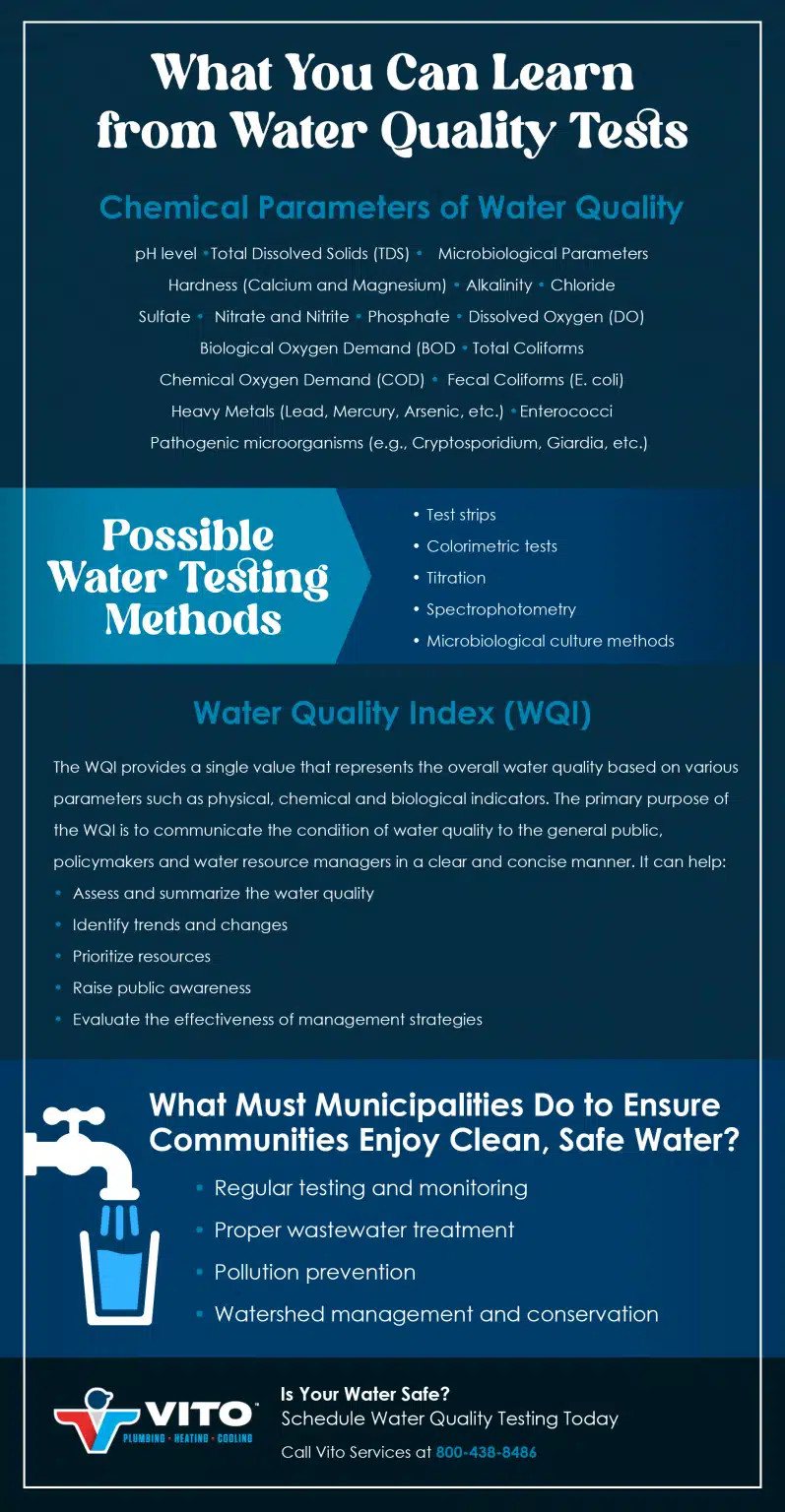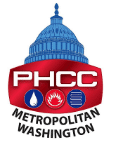Homes in the Washington D.C. area, like those in many urban areas, can benefit from water filtration systems for various reasons. While the city's water supply, managed by DC Water, generally meets federal and state drinking water standards, some homeowners may still find value in installing a water filtration system for personal and health reasons.
- Lead contamination: Older homes in the D.C. area, particularly those built before 1986, may have lead pipes, fixtures or solder, all of which can contribute to lead contamination in drinking water. A water filtration system with a certified lead-removing filter can help protect against potential lead exposure. However, filtration generally isn't the ideal solution if your home has lead pipes or is being connected to the city system with a lead service line. You should check DC Water's live map to find out if your home has lead pipes or is connected with a lead service line. It's better to simply replace the lead pipes and eliminate the problem altogether, and Vito Services can help. We're participating in the Lead Pipe Replacement Assistance Program and would be happy to get your pipes replaced and help you determine whether you are eligible for monetary assistance.
- Chlorine and chloramine: DC Water uses chlorine and chloramine to disinfect the water supply. While these disinfectants are effective in killing harmful microorganisms, they can impart an unpleasant taste or odor to the water. An activated carbon filter can help remove chlorine and chloramine, improving the taste and odor of tap water.
- Sediment and particulate matter: Sediment and particulate matter may sometimes be present in the water supply, especially if there are disturbances in the water distribution system. Some filters can help remove these particles, providing clearer and cleaner water.
- Taste and odor preferences: Some individuals prefer the taste and odor of filtered water over unfiltered tap water, even if it meets safety standards. A filtration system can improve the water's aesthetic qualities by removing impurities that can affect its taste and smell.
- Health concerns: Individuals with compromised immune systems or specific health concerns related to water quality may benefit from using a filtration system to provide an extra layer of protection.
- Preventing scaling: Scaling can reduce the efficacy of certain household appliances (like water heaters), reduce flow and cause premature breakdowns and plumbing problems. Some people also don't like the feel, taste or washing results of using hard water. Some water treatment options, like anti-scale systems and water softeners, can prevent scaling.
While a water filtration system can offer numerous benefits, it may be beneficial to test your water first to determine which contaminants or impurities are present. Knowing what's in your water will help you choose the most appropriate filtration system for your needs.
Not all filtration systems are designed to remove the same contaminants, so selecting the right system based on your water quality test results and personal preferences is crucial. An experienced plumbing company can help you understand which systems can best address your specific concerns.

WHAT TO CONSIDER WHEN MAKING YOUR WATER TREATMENT CHOICE
In addition to all the water quality benefits, there are also some significant environmental advantages to investing in whole-house filtration. Using a home water filtration system can reduce your reliance on bottled water, which helps cut down on plastic waste and the environmental impact of its production and transportation. If your household exclusively uses bottled water for drinking, it might be time to consider filtration.
You should also consider the upfront and ongoing costs of a water filtration system, including the cost of the system itself, installation, maintenance and filter replacements. Determine if these costs fit within your budget and weigh them against the benefits of improved water quality.
Water filtration maintenance costs are far from uniform. Those that require frequent filter replacement or media replacement will cost more to operate long term. For example, the media in the Flow-Tech Pure CX Carbon Whole-House Water Filter should last for at least five years before needing replacement (if the system is properly sized for you home), which means the cost of operation is fairly low. Other solutions, like our Flow-Tech Home MAX Anti-Scale System can minimize scale buildup without any kind of physical media or the traditional regular maintenance you might need if you have a traditional water softener installed.
Ultimately, the decision to get a home water filtration system depends on your specific needs and preferences. If your water quality is good and you are satisfied with its taste and odor, you may not need a filtration system. However, if you have concerns about your water quality or simply want to improve its taste and healthfulness, purchasing a home water filtration system can be a worthwhile investment.
FIND OUT WHICH WATER TREATMENT SYSTEM IS RIGHT FOR YOUR HOME
A home water filtration system is far from the most expensive home improvement project, but it should still be considered a long-term investment. Choosing the best option at the outset can ensure you aren't forced to deal with replacement or problems down the line. The plumbers at Vito Services can help you make the right choice for you and provide worry-free, reliable installation.
Call us at 301-315-6100 to get started.







